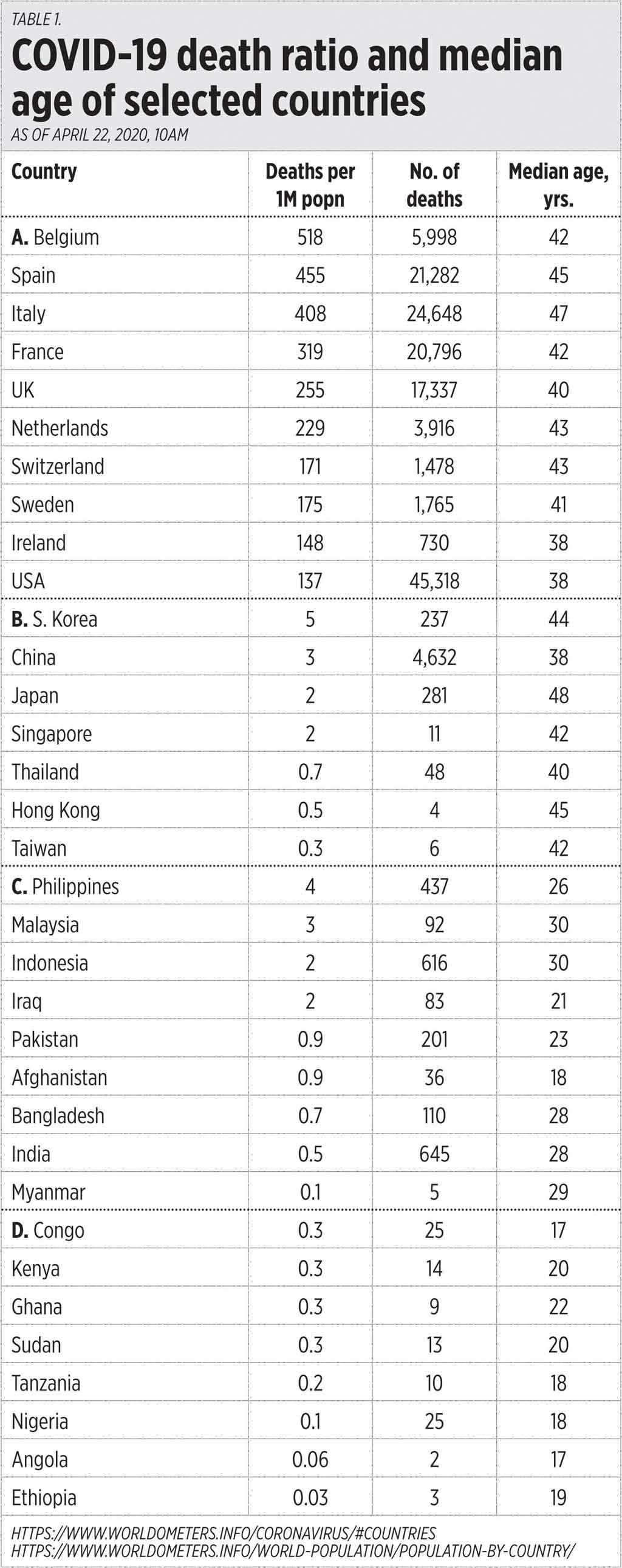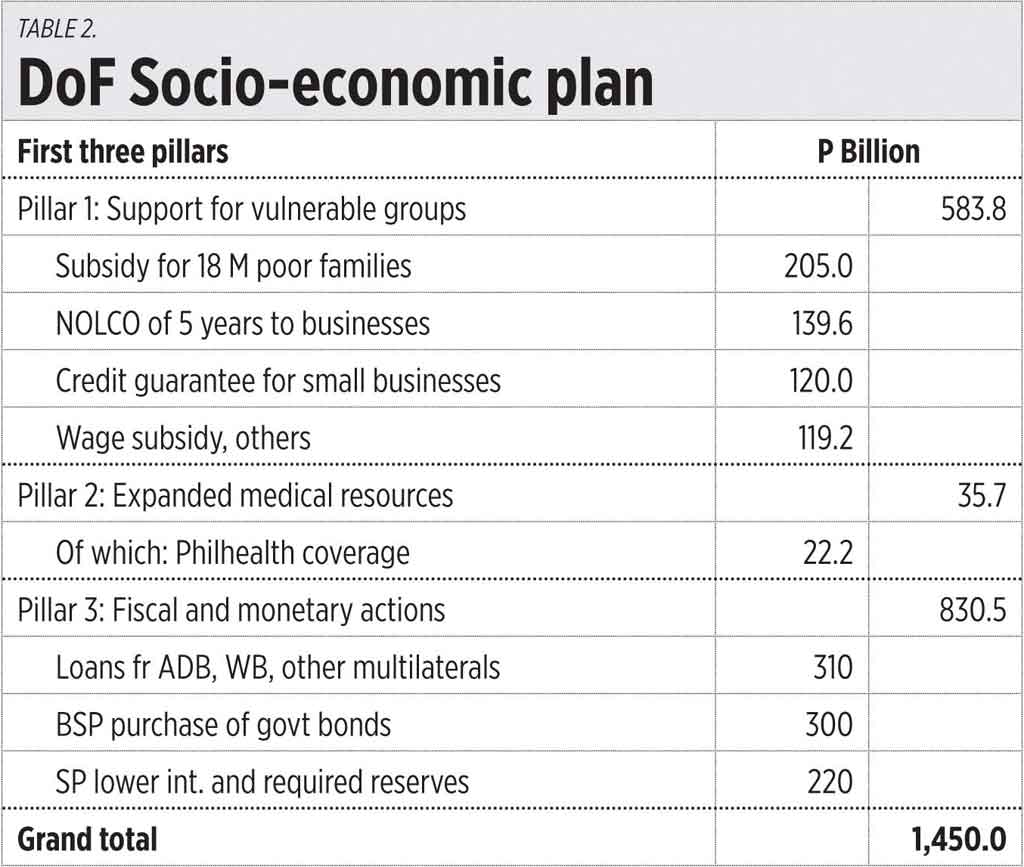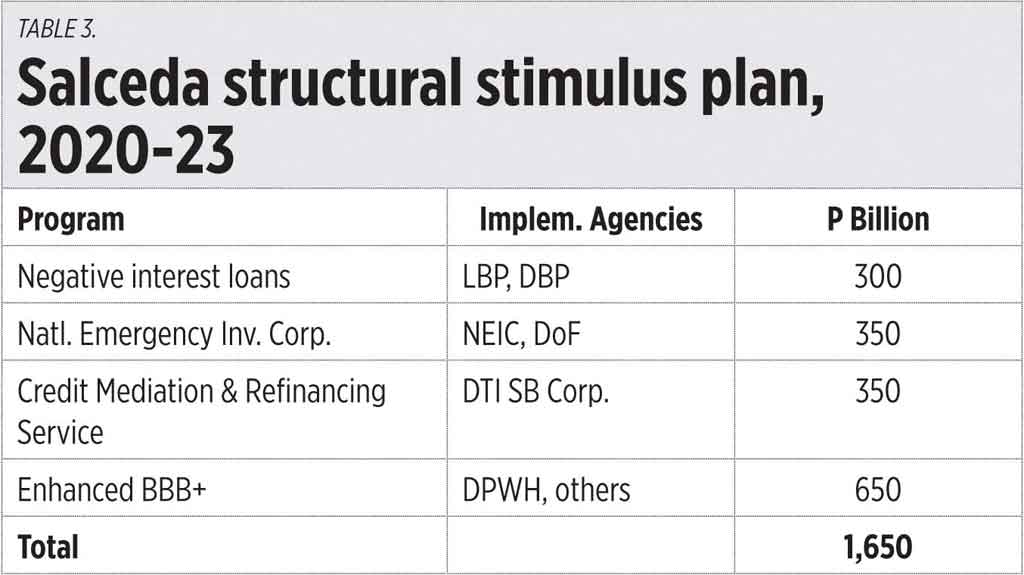Life or money?
I am certain the COVID-19 lessons from Taiwan, Korea, and Hong Kong, as well as Japan and Singapore, and even in the United States, Italy, and the rest of Europe are not lost on our public officials and business leaders. I am likewise certain that many factors are now under consideration as the country decides on the next course or phase of action.
The Luzon-wide ECQ (Enhanced Community Quarantine) is scheduled to end April 30, Meantime, even local governments in the Visayas and Mindanao have implemented quarantine protocols or procedures because of COVID-19 cases in their localities. So, in effect, practically the entire country is on some form of lockdown to date.
And this has resulted in much discussion and debates, in public and private fora, inside and outside the corridors of power, with groups and individuals all weighing in on the choice between life or money (economy). In my opinion, however, this is not an “or” but an “and” question, as one cannot do without the other. Both population and economy need to survive and endure, side by side.
What started as a public health emergency in early March in the Philippines, resulting from a COVID-19 global pandemic that started in China in January, has now also become an economic emergency. Or, as United Nations World Food Program Director David Beasley put it, “We are on the brink of a hunger pandemic.” He noted the economic impact of the COVID-19 pandemic could lead to a “humanitarian catastrophe.”
Locally, it is safe to assume a rise in hunger incidence particularly in urban poor communities in the metropolis. Daily wages are in short supply, with many small and medium businesses on lockdown for almost 40 days now, and with that the means for the poor to avail themselves of much needed basic necessities. Government assistance is not enough to sustain them, more so if the lockdown continues.
The wealthy may have less to worry about in terms of daily living costs, and the poorest of the poor may get some relief through government aid. But, the ever-shrinking middle-class has become even more endangered and has inched closer to extinction. And even while the government initiates efforts to assist them as well, for sure, the aid will likewise be insufficient.
I believe that neither the government nor the private sector have enough resources, even combined, to indefinitely sustain people and to keep most of us out of poverty, and to keep hunger at bay, in a prolonged lockdown. We are moving towards 45 days now, and looking at the possibility of another 15 to 30 days getting added to the ECQ
While an expected increase in consumer demand after the lockdown period, perhaps towards the third and fourth quarters of the year, is anticipated to move the economy forward, I am concerned that by the time consumers come knocking, many suppliers will no longer be around. Small and medium enterprises will find it difficult to remain in business after 45-60 days of zero revenues.
Moreover, one cannot expect consumer demand to go back to pre-COVID-19 levels after the lockdown. Personally, I think demand will climb significantly only after maybe two to three years or until about 2022 or 2023. Small businesses will go under, and big businesses will undergo a period of consolidation. Meantime, more overseas Filipino Workers (OFWs) will come home and possibly be jobless for a while.
As businesses go through recovery, tax revenues will go down as well. But government spending will have to go up to pump prime the economy once more, while more public funds will go to social amelioration, welfare assistance, and economic assistance to businesses. Infrastructure spending may have to be calibrated, or at least adjusted to ensure the creation of more jobs and business opportunities.
Foreign reserves will drop, with OFW remittances going down and exports possibly slowing. And with limits on foreign currency supply, importation of food and other raw materials may go down as well. Unless local sources, particularly for food and manufacturing and processing inputs, are developed and sustained, then significant economic growth will be difficult to sustain.
The middle-class, in particular, has always been left to fend for itself. Despite not being wealthy enough to be comfortable but not poor enough to deserve government help, it has managed to sustain itself mainly through opportunities in retail and services, and a strong spirit. Many have ventured out to become OFWs, while others risked going into business for themselves.
This particular class is about to be decimated by COVID-19 and its consequences, including lockdowns. None of them are about to go up. Some will manage to stay where they are. But most will most likely go down. And there is not enough assistance out there, either from the government or the private sector, that can keep them up. They are now on the canvas, and the count has begun.
When consumers return, will their suppliers be still around? Not all, for sure, especially the more affordable ones. The middle class managed to survive in the past, but maybe not this time around. Unless, the government soon restores their right and freedom to earn a living, to fend for themselves, and to be less a burden to the public and private sector.
Give a man a fish or teach a man to fish? SMEs, in fact, know how to fish. Many of them actually fish very well. But, take away their fishing ground then how do you expect them to feed themselves? The middle-class can skip a dole out if they are given the opportunity to find new means and ways to do business under a “new” normal.
Allowing SMEs to restart soon can help ease the government’s burden of providing for them. Allowing even the poor to start fending for themselves in a way, by restoring their freedom to earn a daily wage, will likewise limit government assistance to only those in dire need. This way, more resources can be channeled back to addressing the public health emergency, rather than having to sustain people in a prolonged lockdown.
Marvin Tort is a former managing editor of BusinessWorld, and a former chairman of the Philippines Press Council.









